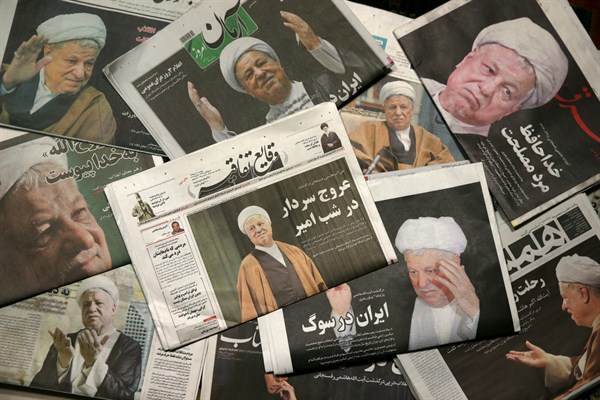Revolutions, by their intrinsic idealism, generate ideological extremism and destructive policies. Like the lava of an active volcano that indiscriminately burns everything in its path, revolutionary extremism devours what stands in its way. The 1979 Islamic Revolution in Iran was no exception. It brought to power idealistic and self-righteous revolutionaries with the mission to establish an Islamic order in Iran and beyond.
Opponents of this agenda, many of whom operated outside of the new system, have been brutally suppressed. Individuals within the governing elite have attempted, with varying degrees of success, to soften this revolutionary extremism and gradually reform the system. The late Ayatollah Ali Akbar Hashemi Rafsanjani, a founding father of the Islamic Republic and president from 1989 to 1997, was among them. His fingerprints remain conspicuously visible in just about every aspect of Iranian politics.
Rafsanjani, who died on Jan. 8, left a powerful but mixed legacy. Although during the formative years of the Islamic Republic he justified brute suppression of the opposition and shrewdly rode the wave of extremism to reach the pinnacles of power, Rafsanjani was often a cautious voice of moderation and reconciliation in an incredibly complex and radical system. One of the most consequential leaders of revolutionary Iran, he was a canny power broker who intuitively knew how far he could push and when to stop in order to ensure his political survival.

